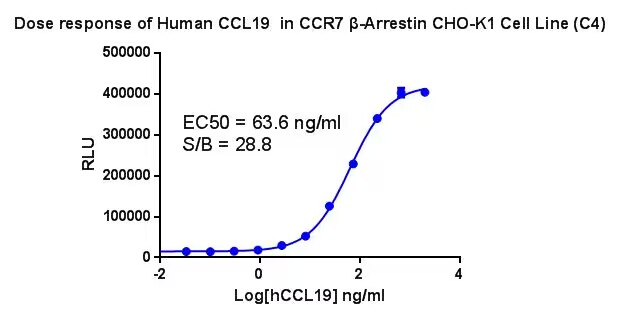CCR7/β-Arrestin/CHO
CBP71399
詢 價(jià)
索取protocol
產(chǎn)品描述
產(chǎn)品數(shù)據(jù)庫
| I. Background | |
| The chemokine receptor CCR7 is a member of the G protein-coupled receptor family (syn. CD197). It is activated by two different ligands, CCL19 and CCL21, and is responsible for the proper recruitment of lymphocytes and mature dendritic cells to lymphoid tissues. Several chemokine receptors, including CCR7, have been identified in the chicken, and their expression in isolated CD4+ T cells from blood and various tissues has been investigated. | |
| II. Introduction | |
| Host Cell: |
CHO |
| Stability: | 20 passages (in-house test, that not means the cell line will be instable beyond the passages we tested.) |
| Freeze Medium: | 90% FBS+10% DMSO |
| Culture Medium: | |
| Mycoplasma Status: | Negative |
| Storage: | Liquid nitrogen immediately upon delivery |
| Application(s): |
Functional assay for CCR7 |
| Transducer: | β-arrestin |
| Ⅲ. Description of Host Cell Line | |
| Organism: | Hamster |
| Tissue: | Ovary |
| Morphology: | Epithelial |
| Growth Properties: | Adherent |
| Ⅳ. Representative Data | |
|
Figure 1. Dose response of Human CCL19 in CCR7 β-Arrestin CHO-K1 Cell Line (C4). |
|



